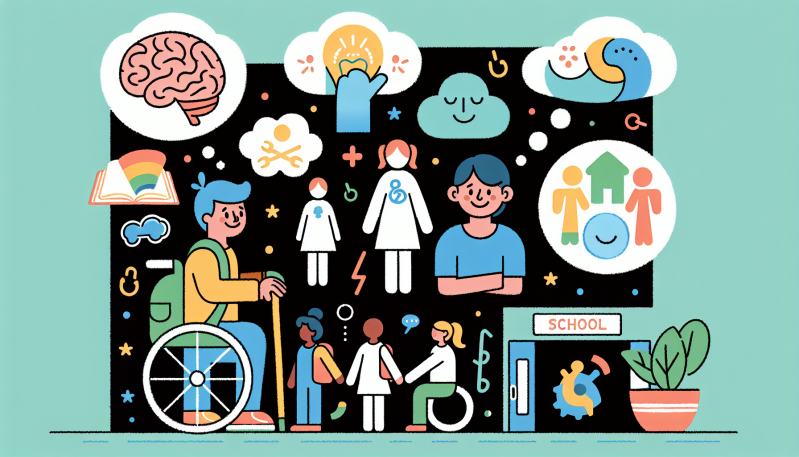In a world where the headlines often highlight division and uncertainty, there’s a beacon of hope that shines brightly in our educational system—Friendship Week. This initiative has taken on the ambitious task of weaving mental health awareness, kindness, empathy, and diversity, equity, and inclusion (DEI) into the fabric of our schools, much like UNICEF’s commitment to supporting vulnerable children globally.
Friendship Week serves as a crucial reminder that the emotional well-being of our young ones is just as important as their academic success. While schools have traditionally been the battleground for educational achievements, we are starting to recognize that they also play a pivotal role in shaping students’ mental health and social attitudes.
Why does this matter? Research has consistently shown that students who feel emotionally supported are more likely to excel academically. They’re better equipped to handle stress, build healthy relationships, and navigate the challenges of growing up. But beyond individual benefits, there’s a collective advantage. A school culture steeped in kindness and inclusivity fosters an environment where everyone feels like they belong, where diversity is celebrated, and where every student, regardless of background, has the opportunity to thrive.
Friendship Week champions these values through a series of initiatives and programs designed to engage students, educators, and parents. Activities that encourage conversation around mental health help to break down the stigma often associated with these topics. Educational resources provide tools for teachers to integrate kindness and empathy into their curriculum. Workshops and seminars enlighten parents on how to address issues of loneliness and social isolation that their children might be facing.
The impact of such an approach can be profound. Imagine a classroom where students are not only learning math and science but are also developing the emotional intelligence to understand and respect their peers’ unique experiences and perspectives. Picture a school where acts of kindness are as celebrated as academic achievements, where students feel empowered to reach out for support without fear of judgment.
But the vision of Friendship Week doesn’t stop at the classroom door. It extends into the community, offering a model for societal change. When schools embrace the principles of mental health awareness and DEI, they send a powerful message to the rest of society—our differences make us stronger, and caring for each other’s well-being is a collective responsibility.
It’s time we rally behind movements like Friendship Week, which not only provide immediate support and resources but also lay the groundwork for a more compassionate, connected future. By sharing this blog, discussing these topics in your networks, and participating in Friendship Week activities, you become an advocate for a healthier, kinder, more inclusive world for our children and the generations that will follow.
In a society that’s increasingly interconnected, let’s ensure that these connections are rooted in understanding, support, and genuine friendship. As we continue to navigate the complexities of the 21st century, the lessons and values imparted during Friendship Week can act as a guiding light—both within the halls of our schools and beyond.
Let’s spread the word, build the movement, and create a legacy of friendship that will resonate for years to come. Share this post, talk about it with friends and family, and most importantly, take action in your local school community. Together, we can make Friendship Week not just an event, but a way of life.


